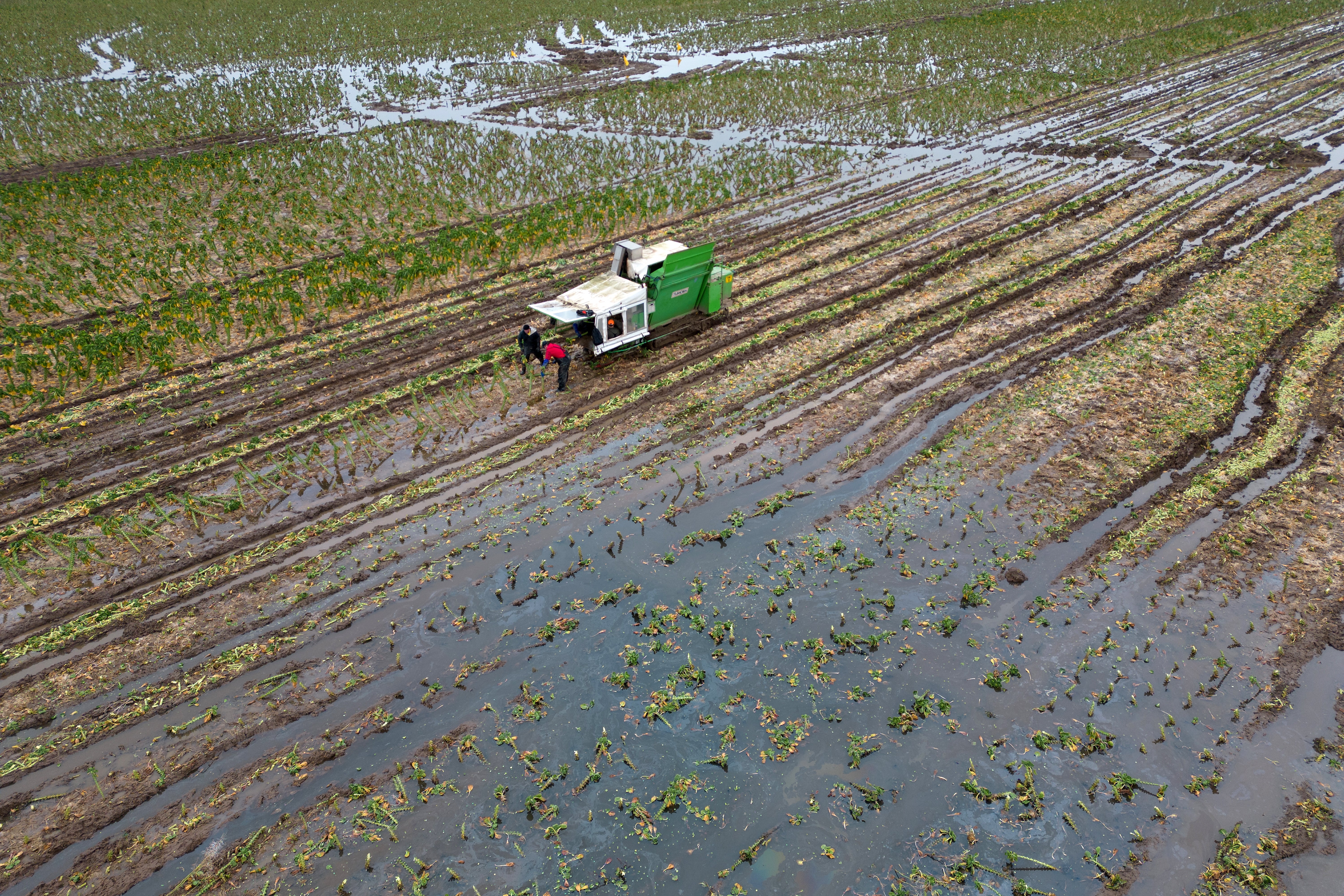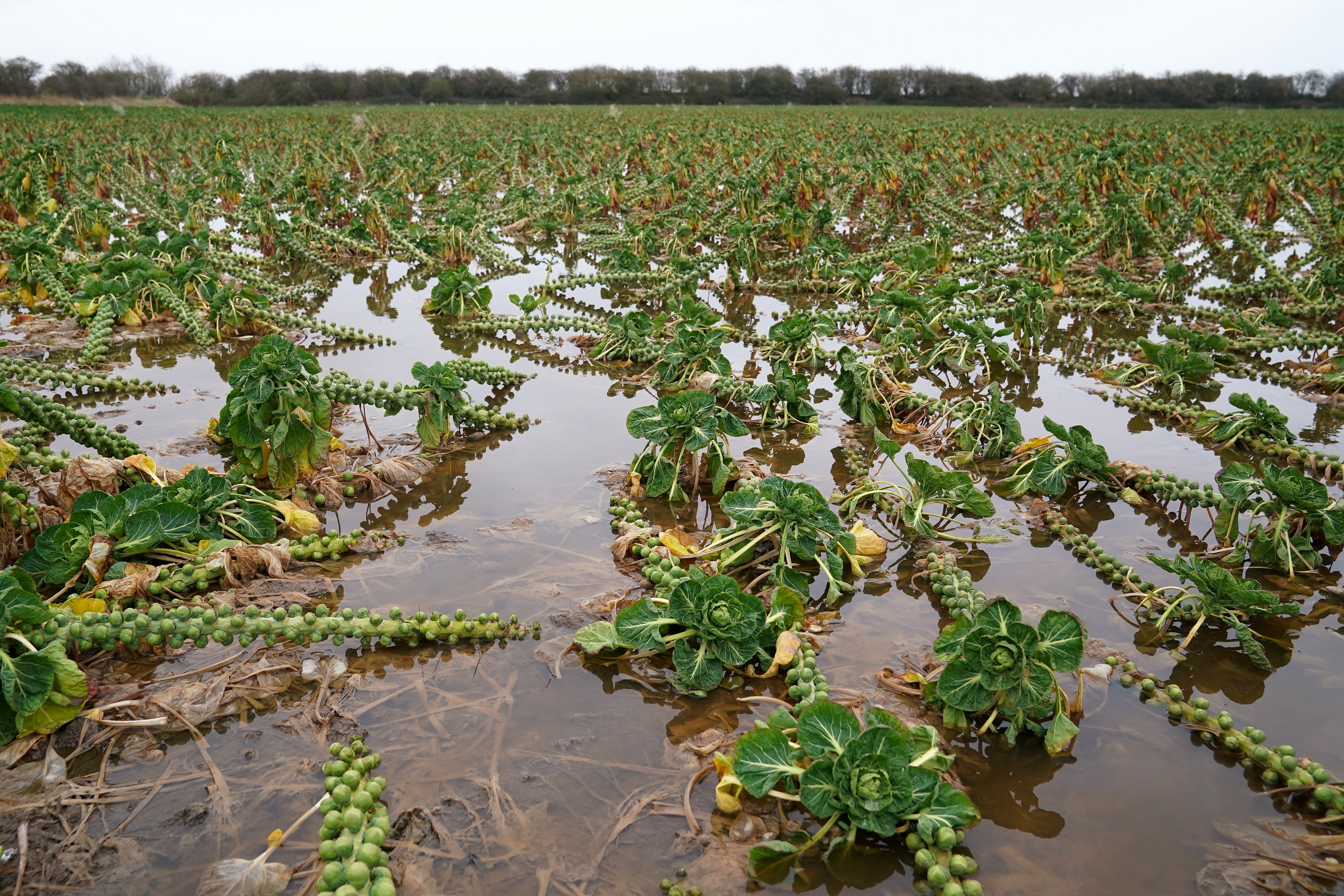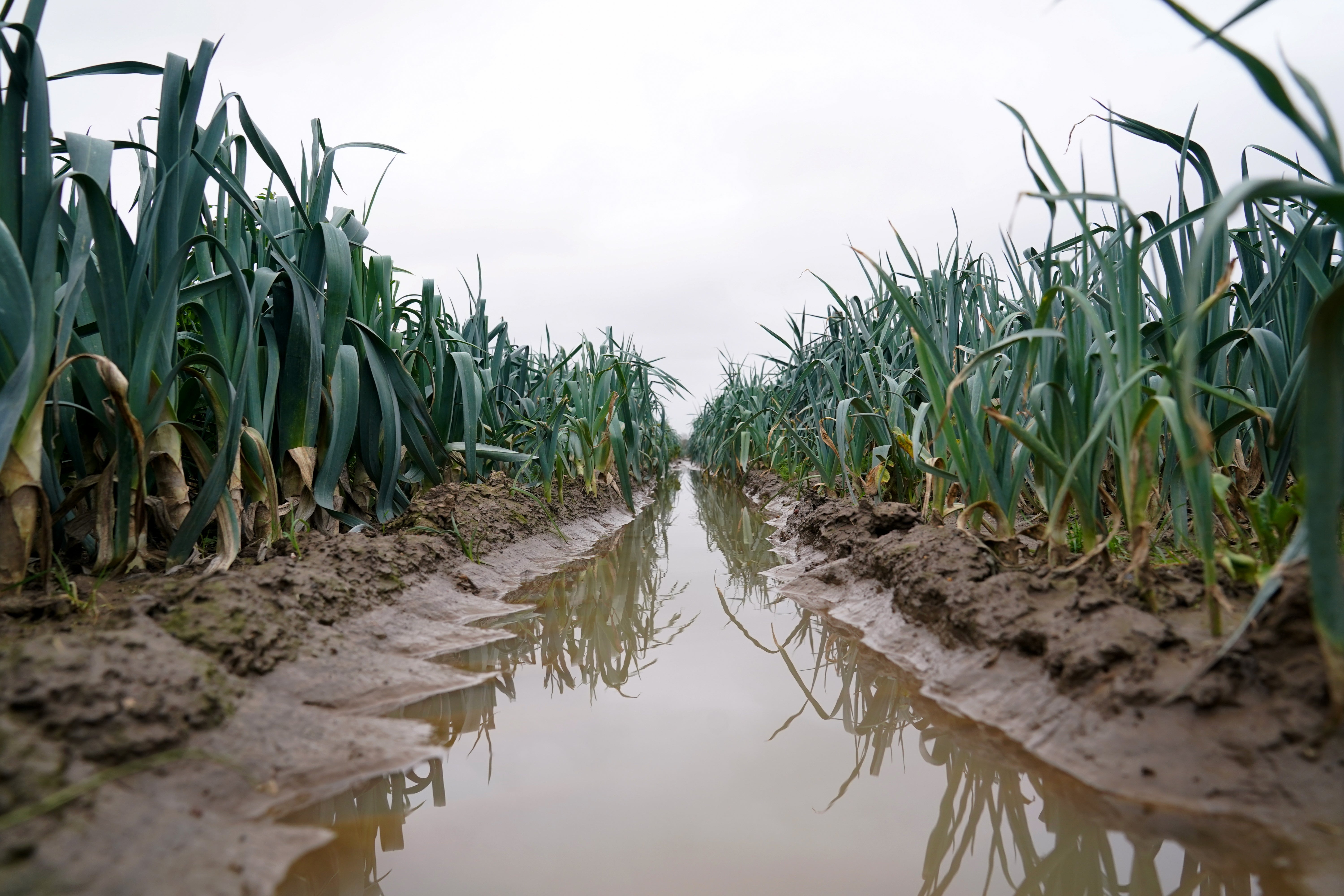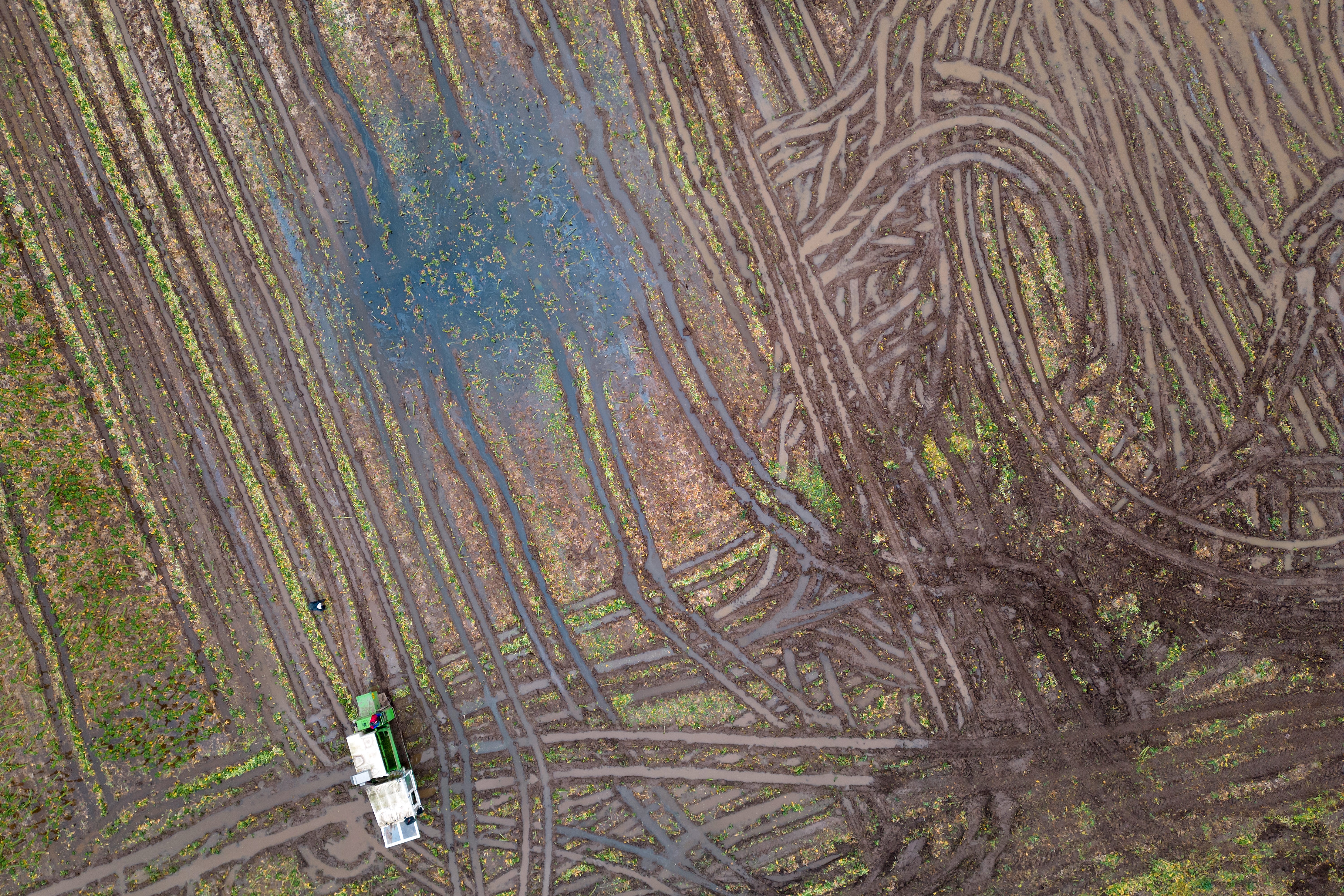Tesco accepts smaller vegetables in bid to help flood-hit farmers
Farmer reports race against clock to pull vegetables from ground before they rot after growing underwater due to flooding
Your support helps us to tell the story
From reproductive rights to climate change to Big Tech, The Independent is on the ground when the story is developing. Whether it's investigating the financials of Elon Musk's pro-Trump PAC or producing our latest documentary, 'The A Word', which shines a light on the American women fighting for reproductive rights, we know how important it is to parse out the facts from the messaging.
At such a critical moment in US history, we need reporters on the ground. Your donation allows us to keep sending journalists to speak to both sides of the story.
The Independent is trusted by Americans across the entire political spectrum. And unlike many other quality news outlets, we choose not to lock Americans out of our reporting and analysis with paywalls. We believe quality journalism should be available to everyone, paid for by those who can afford it.
Your support makes all the difference.A supermarket chain is temporarily accepting some smaller-than-usual vegetables in a bid to help flood-hit farmers.
Tesco has implemented a relaxation on size requirements for sprouts, cauliflowers, cabbages and leeks, amid reports it has become a race against the clock to pull vegetables from the ground before they rot after growing underwater due to flooding.
The move is aimed at helping to keep British vegetables on the shelves rather than imports and to reduce the risk of shortages.

The supermarket said farmers will still supply them with more of their crop and avoid having to sell at lower prices on the open market.
Storm Henk battered the UK last week, bringing heavy rainfall and subsequent flooding, which has affected growers around the country, including in Lincolnshire, East Anglia, Cornwall and Scotland.
The National Farmers Union horticulture and potatoes board chair, Martin Emmett, told The Independent: “The recent poor weather, flooding and heavy rain has disrupted the growth and harvesting of some vegetable crops, such as potatoes, since land became waterlogged or flooded.

“We have no expectations of shortages currently, but it remains important that we make the best of what’s available with supermarkets offering flexibility to growers when it comes to crop specification. In doing so, the food chain from farm to plate will avoid unnecessary food waste.”
One of the biggest growers of winter vegetables, TH Clements, based near Boston in Lincolnshire, reported that they have only had a handful of dry days since October, which has made harvesting difficult.
TH Clements commercial director John Moulding said: “This is the worst flooding we have had this century and we have lost about 20 per cent of our total winter crops including sprouts, cabbages, cauliflower and leeks.

“It’s been a very tough time for us for more than three months both physically and financially in having to pull the vegetables out of the muddy fields.
“We have literally had to race against the clock to get the vegetables pulled out of the ground to stop them from rotting.
“The flexibility that Tesco has given us has allowed us to maximise the amount of product we can get on their shelves therefore guaranteeing greater availability for shoppers.”

Sprouts were a particular problem due to their size and some were growing underwater due to the flooding.
In order to dry the wet sprouts, Tesco worked with growers to develop a new drying method, using cool air blowers to blow the water off them in their storage pallets.
Tom Mackintosh, Tesco Fresh Produce and Horticulture Director, said: “By accepting slightly smaller sprouts, cauliflower, cabbages and leeks, we can support the fresh produce industry while ensuring that customers are able to continue to buy British winter vegetables.
“We’re pleased to be able to provide support to our growers, farmers and suppliers who are facing really challenging harvesting conditions.”

Join our commenting forum
Join thought-provoking conversations, follow other Independent readers and see their replies
Comments